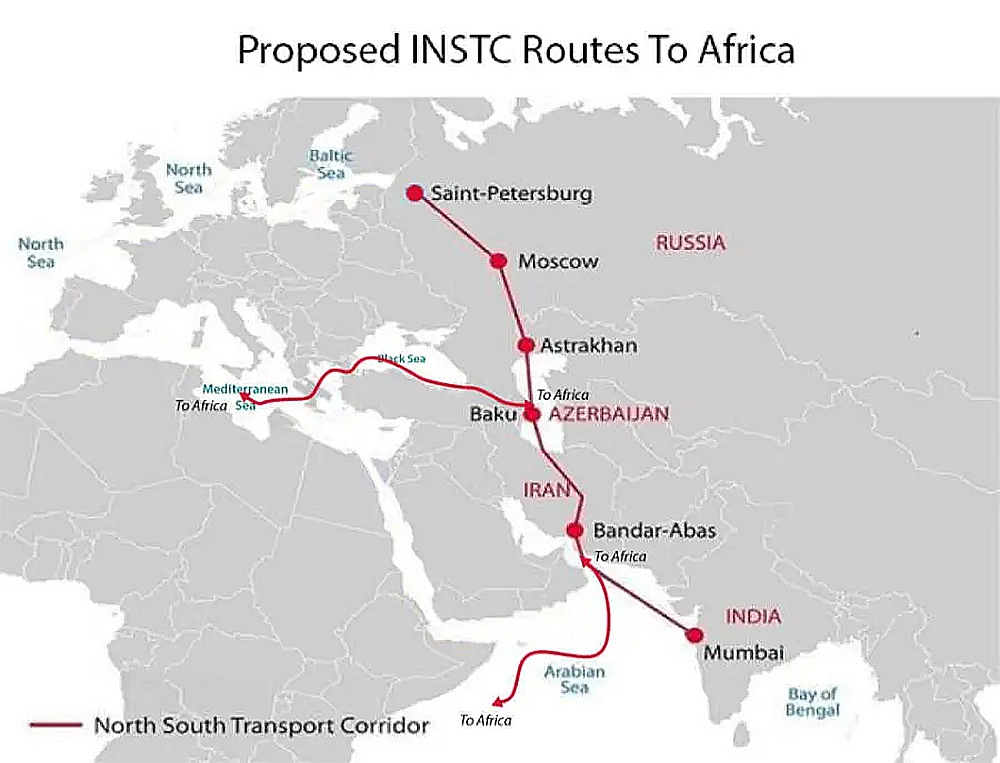5/25/25 Russia keen to see INSTC rail network extend into Africa
Russian Railways (RZD) sees potential to extend the International North-South Transport Corridor (INSTC) to Africa and is also studying railway projects in a number of African countries, RZD first deputy CEO Sergei Pavlov has stated. He was speaking at the State Duma during a meeting of the expert council for the development and support of comprehensive partnership with African countries.
Pavlov said that “Given the potential of developing trade with African countries, we see prospects for the further development and extension of the International North-South Transport Corridor to Africa with the creation of the appropriate transport infrastructure. We are prepared to actively get involved in this work with interested Russian operators and logistics companies.
“In addition, we are currently studying opportunities to implement projects to build and modernize railway infrastructure in certain countries, namely Burkina Faso, Ghana and South Africa, and we’re also waiting for the normalization of the situation in Libya. In this area we’re prepared to offer African partners the whole range of services, from feasibility study to construction and equipment supplies. Of course, the issue of financing and ensuring mutual settlements is extremely important. But here we’re working with our specialized Russian agencies and institutions in the support of foreign economic activities.”
The INSTC connects northern Russia with countries on the Persian Gulf and Indian Ocean through Russia, the Caucasus and Central Asia. Russia, Iran and India signed an agreement on the creation of this multimodal corridor in 2000 and now there are 12 participating countries. The corridor includes through routes: the western route along the western coast of the Caspian Sea, the eastern route along the eastern coast of the Caspian and the trans-Caspian route across the sea.
Connecting Africa to the INSTC would involve multimodal support including maritime services to connect to African railway networks. Africa itself is developing a Pan-African railways network that is expected to unite most of the continent. This consists of several major lines, and is expected to be completed by 2035. China’s Belt & Road Initiative and its investments into Africa have been responsible for much of the infrastructure development thus far, and especially on Africa’s Northern and Eastern coasts.


 REAB Services
REAB Services

 News
News
 Useful tip
Useful tip
